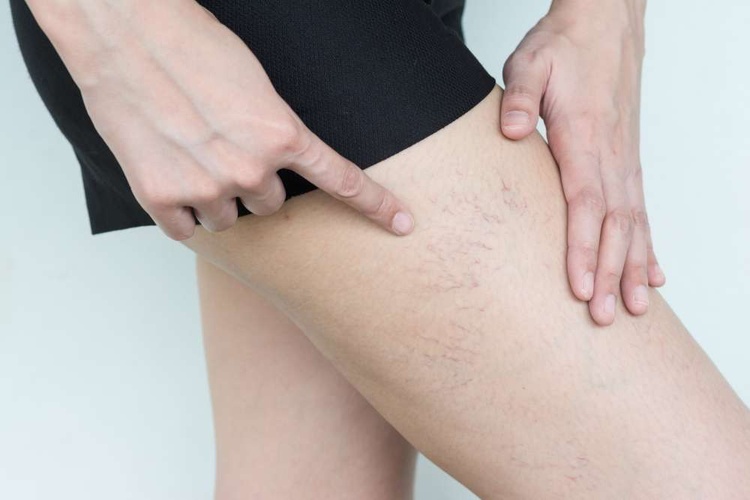Comprehensive Guide to Hair Schools: From Courses to Certifications
Hair schools offer aspiring stylists and salon professionals the education needed to launch successful careers in the beauty industry. Whether you're looking for foundational training or advanced specialization, today's beauty education landscape provides diverse options from traditional in-person classes to flexible online learning. This guide explores the essential aspects of hair education, certification requirements, and how to choose the right program for your career goals.

Understanding Hair Stylist Courses: The Foundation of Your Career
Hair stylist courses form the backbone of professional training in the beauty industry. These programs typically cover fundamentals like hair cutting techniques, coloring theory and application, chemical treatments, styling, and client consultation skills. Most comprehensive hair styling programs require 1,000-1,500 hours of training, depending on state licensing requirements.
Core curriculum typically includes anatomy and physiology of hair and scalp, sanitation practices, and professional ethics. Many programs also incorporate practical business skills like client retention, retail sales, and basic accounting principles. The best hair stylist courses balance theoretical knowledge with extensive hands-on practice, allowing students to develop their technical abilities under experienced instructors’ supervision.
When evaluating hair stylist courses, look for programs accredited by organizations like the National Accrediting Commission of Career Arts and Sciences (NACCAS), which ensures the curriculum meets industry standards. Programs should also prepare students for state board examinations, which are required for professional licensing in most locations.
Salon Management Certification: Taking Your Career to the Next Level
For those aspiring to leadership positions or salon ownership, salon management certification provides crucial business acumen beyond styling skills. These specialized programs focus on the operational aspects of running a successful beauty business, including financial management, staff supervision, inventory control, marketing strategies, and customer service excellence.
Salon management certification programs typically require completion of a basic cosmetology program first, though some schools offer integrated programs. Coursework often covers salon operations, human resources management, retail product knowledge, and business plan development. Many programs include internship opportunities with established salon owners or management teams.
The Professional Beauty Association (PBA) offers respected certification programs specifically for salon managers and owners. These credentials demonstrate a serious commitment to business excellence and can make candidates more attractive to employers or investors if planning to open an independent salon. The investment in management education often pays dividends through increased earning potential and career advancement opportunities.
Finding Hairdressing Workshops in Your Area: Continuous Skill Development
Continuous education through specialized hairdressing workshops helps professionals stay current with evolving trends and techniques. These short-term, focused training sessions provide opportunities to learn specific skills like balayage coloring, extension application, bridal styling, or cutting-edge haircut methods without committing to another full program of study.
To find quality hairdressing workshops locally, start by checking with established beauty schools in your region, as many offer continuing education courses open to working professionals. Professional associations like the American Association of Cosmetology Schools (AACS) maintain directories of accredited institutions offering workshops. Major product manufacturers including Wella, Redken, and Matrix frequently host technique-specific training events across the country.
Social media platforms, particularly Instagram and Facebook, have become valuable resources for finding workshop announcements from visiting educators and local training opportunities. Following industry influencers and education-focused accounts can provide early notification of upcoming events. Additionally, major beauty industry conventions like Premiere Orlando or the International Beauty Show feature numerous workshops taught by leading industry experts.
Online Hairdressing Classes: Flexible Learning for Busy Professionals
The digital evolution of beauty education has made online hairdressing classes increasingly prevalent, offering flexibility for those balancing work, family, or geographic constraints. These virtual learning opportunities range from supplemental skill development to comprehensive programs with distance learning components.
Online hairdressing education typically features video demonstrations, digital textbooks, virtual classrooms for discussion, and digital assessment tools. While practical skills ultimately require hands-on practice, many fundamental concepts can be effectively taught through digital means, particularly color theory, business practices, and product knowledge.
Reputable online programs incorporate practical components through various approaches. Some use hybrid models requiring periodic in-person workshops, while others utilize specialized mannequin kits shipped to students for at-home practice. Virtual coaching sessions with instructors provide real-time feedback on techniques demonstrated via video conferencing.
Hair School Costs and Program Comparison
Hair education represents a significant investment, with costs varying widely based on program length, location, and institutional reputation. Understanding these financial considerations is essential for proper planning.
| Institution Type | Average Tuition Cost | Program Duration | Additional Expenses |
|---|---|---|---|
| Community College Programs | $5,000-$10,000 | 9-12 months | $1,000-$2,000 for kit and books |
| Private Beauty Schools | $10,000-$20,000 | 9-15 months | $2,000-$3,500 for professional tools |
| Prestige Beauty Academies | $15,000-$25,000+ | 12-18 months | $3,000-$5,000 for high-end supplies |
| Online Basic Certification | $1,500-$5,000 | 3-12 months | Varies based on required equipment |
| Specialized Master Classes | $500-$2,500 | 1 day-2 weeks | Often includes specialized tools |
Prices, rates, or cost estimates mentioned in this article are based on the latest available information but may change over time. Independent research is advised before making financial decisions.
Financial aid options exist for many hair education programs, including federal student aid for accredited institutions, private beauty industry scholarships, payment plans, and GI Bill benefits for veterans. Some salons offer apprenticeship programs or tuition reimbursement for employees pursuing additional education, which can significantly reduce out-of-pocket costs.
Choosing the Right Hair Education Path
Selecting the optimal hair education program requires careful consideration of your career objectives, learning style, and personal circumstances. Begin by researching state licensing requirements in your location, as these will dictate minimum training hours and curriculum needs. Consider your specialized interests within the field—whether classic styling, avant-garde techniques, natural hair, or another niche—and seek programs with strong offerings in those areas.
Visit potential schools to observe classroom environments and student-teacher interactions. Speak with current students and alumni about their experiences, and ask about job placement rates and career services. Evaluate the school’s industry connections for professional opportunities after graduation.
The beauty industry rewards those who commit to continuous learning throughout their careers. By starting with quality foundational education and consistently upgrading skills through workshops and specialized training, you can build a fulfilling, successful career in hair styling and salon management.




